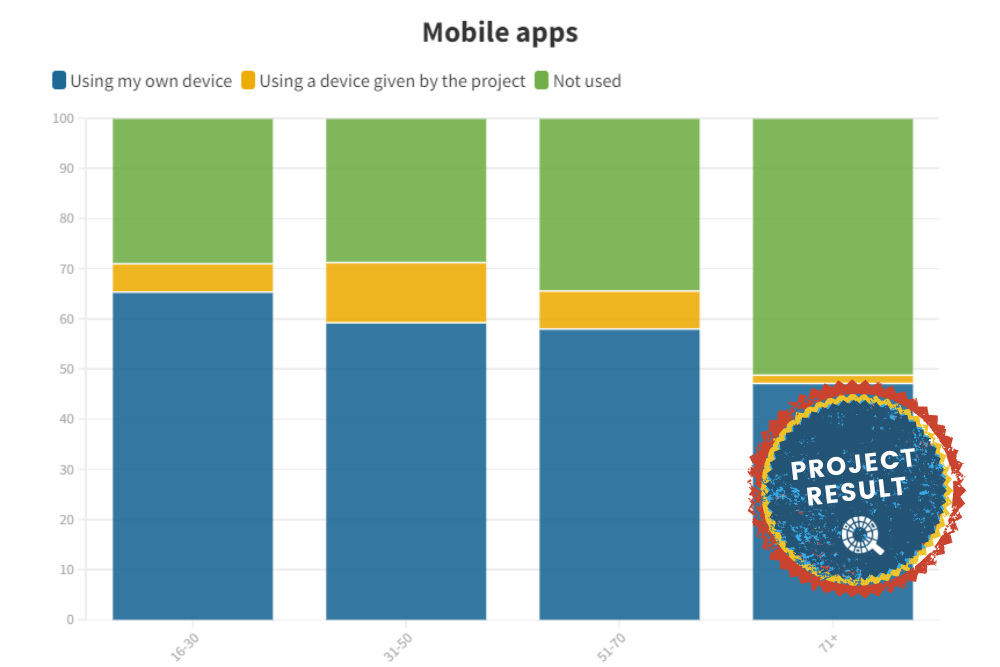Citizen science engages adults of all age groups. According to participants, which are technologies they use to participate in CS activities? What are the differences between different age groups and the technologies they use?

We would like to inform that this project is inactive since December 2022. As a result, the content presented on this website is static, which means it cannot be updated, and no new information will be added. Consequently, interactive features such as the search function, or subscription and commenting capabilities are unavailable.

Citizen science engages adults of all age groups. According to participants, which are technologies they use to participate in CS activities? What are the differences between different age groups and the technologies they use?
Over the past few months, our colleague Miriam Calvera-Isabal (UPF) has presented the CS Track project and our research findings at different conferences and project meetings, including TEASPIL, H2O Learn and LASI Spain. She explained how CS Track has centralized...
CS Track and ECSA teams are organising a half-day symposium under the theme "Understanding the nature of Citizen Science in a rapidly changing world" on 8 October, 9:00-13:00 CET in Berlin. This symposium aims at sharing these results and findings and discussing their...
Online Workshop on Thursday, 7 July 2022, 14:00 – 15:30 CET In this installment of our webinar series, CS Track researchers will share tips and tricks for writing informative and engaging project descriptions and analyse concrete examples (both positive and negative)...
The CS Track team has released a new report entitled Models to identify background factors associated with the CS activity. It introduces how the CS Track team created 6 models with the aim of developing a deeper understanding of how different factors (e.g. gender, age, roles in CS) are associated with different forms of participation in CS activities.
Societal impact is increasingly central to scientific research. How does new knowledge contribute to solving major issues in society? And how can we gain knowledge that is actually beneficial for society? Scientists are motivated to put their knowledge into practice,...
The page you requested could not be found. Try refining your search, or use the navigation above to locate the post.